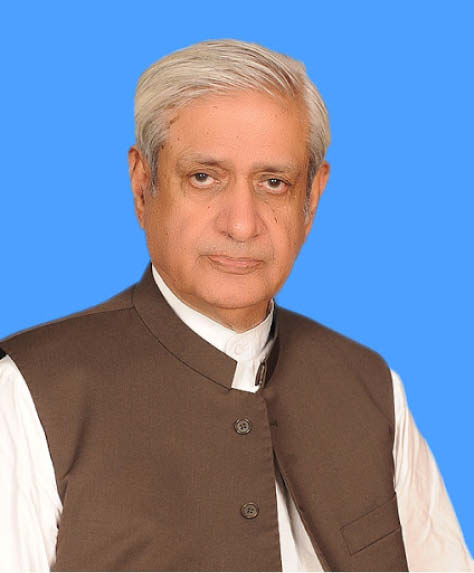Staff Reporter Islamabad
Federal Minister of National Food Security and Research Syed Fakhar Imam has said that healthy forest ecosystems are essential for sustainable agriculture production.
Syed Fakhar Imam addressed the 25th session of the Near East Forestry and Range Commission (NEFRC) which was virtually hosted by Egypt.
The federal minister said that Agriculture is likely to face severe impacts from climate change, reducing the amount of food we can grow at a time when more is needed than ever before.
The planet’s growing population and food consumption will require food production to increase by 70 per cent by 2050.
The world population is expected to grow from 7 to 9 billion by 2050. With consumption already at 1.5 times the planet’s replenishing capacity, our current food systems are unsustainable.
At the same time, the production, storage, and transport of food cause greenhouse gas emissions which contribute to climate change. Food systems are responsible for up to 30% of global greenhouse gas emissions.
The production of rice, which is a staple food for almost half of the world population, is responsible for about 11 per cent of all manmade methane emissions.
In addition, cutting down forests for new farmland and unsustainable farming practices are major sources of carbon dioxide (CO2) emissions.
Fakhar Imam said that the agricultural sector of Pakistan is indispensable to the country’s economic growth, food security, employment generation and poverty alleviation.
It contributes 19.2 per cent to the GDP and provides employment to around 39 per cent of the labour force.
More than 65-70 per cent of the population depends on agriculture for its livelihood. In spite of COVID-19, locust attack and extreme climatic events the Pakistan agriculture sector’s performance during 2020-21 was encouraging as it grows by 2.77 per cent against the target of 2.8 per cent.
However, the population of the country will be 350 million by 2050 and the food requirements will be 130 MMT. This will be possible if we wisely use land, water and other available resources.
Furthermore, he said that to counter such issues, under the direction of PM Imran Khan, Pakistan has already planted a billion trees in KP while National Scale Ten Billion Afforestation Project is underway.
These initiatives will increase the forest cover area, desertification control, climate mitigation, biodiversity conservation and ecosystem improvement.
The 10 billion afforestation program is further linked to promoting Apiculture in the country and production of quality honey with additional plantation of bee supporting flora.
Syed Fakhar Imam said that healthy forest ecosystems are essential for sustainable agriculture production.
The following recommendations are proposed:
Strong linkages are required among Near East & North Africa (NENA) for knowledge sharing, technology transfer and human resource development in areas of sustainable agriculture production while restoration .










